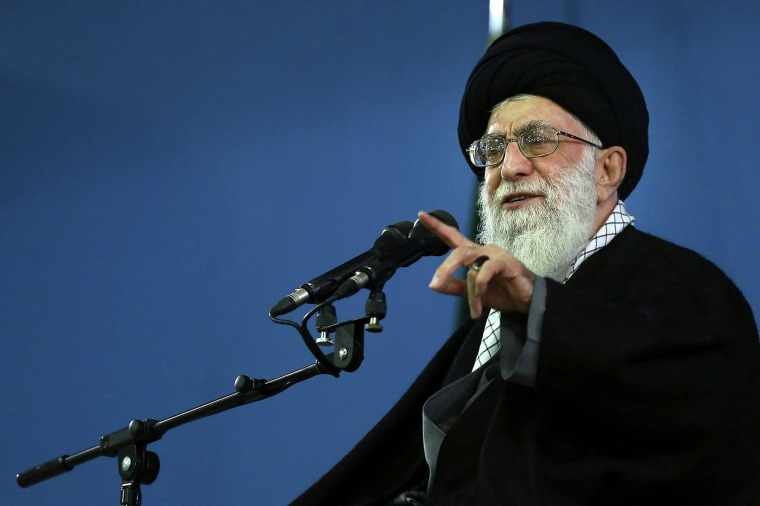Six world powers and Iran met in Vienna to begin hashing out a long-term deal on Tehran's disputed nuclear program Tuesay -- but the Islamic Republic's supreme leader predicted negotiations "will lead nowhere."
Ayatollah Ali Khamenei's pessimistic comments underscore the difficulty diplomats face as they try to seal a final agreement before an interim pact expires in July.
"Some of the officials of the previous government as well as the officials of this government think the problem will be resolved if they negotiate the nuclear issue," Khamenei, who is Iran's most powerful political leader, said on his website, according to Agence France Presse.
"I repeat it again that I am not optmistic about the negotiations and they will lead nowhere but I am not against them," he added. "The work that has been started by the foreign ministry will continue and Iran will not violate its commitment, but I repeat it again, it will lead to nowhere."
The Vienna meeting is expected to last two or three days.
The election of moderate Hassan Rouhani as president of Iran and his September phone call with President Obama during the United Nations General Assembly buoyed hopes of a new chapter opening between Iran and the West.
In November, Iran and the so-called P5+1 — U.S. Security Council permanent members Britain, France, the U.S., Russia and China, plus Germany — inked a preliminary accord in which Tehran agreed to freeze uranium enrichment in exchange for an easing of crippling sanctions.
Now the two sides must get down to the nitty-gritty, haggling over details like how many centrifuges Iran should be allowed to keep running and the future of a heavy-water reactor that the U.S. fears could be used to produce plutonium for a bomb.
Geneive Abdo, an Iran expert at the non-partisan Stimson Center, thinks it's unlikely a major deal will come out of the talks being headlined by Iranian Foreign Minister Javad Zarif and the European Union's foreign policy chief, Catherine Ashton.
"It seems that Rouhani is losing the window of opportunity he was given when he was elected," she said, citing Khamenei's remarks and other anti-U.S. sentiment coming out of Iran in recent weeks.
"The hardliners still control much of the government and much of the decision-making and just because a pragmatist was elected, doesnt meant he’s going to be given free reign to govern."
Iran denies that its nuclear program has a military purpose and its leaders have said dismantling its infrastructure is a non-starter.
Meanwhile, the Obama administration had to fend off a move by some in Congress to vote for more sanctions against Iran.
Some Iran analysts say that if some progress is made during the new round of talks, the two sides might agree to an extension of the interim accord.
Abdo, however, said a more drawn-out process may be less likely to produce results.
"In fact, Rouhani has very little time," she said. "We’re already seeing the hardliners trying to regain their power."
Reuters contributed to this report.
